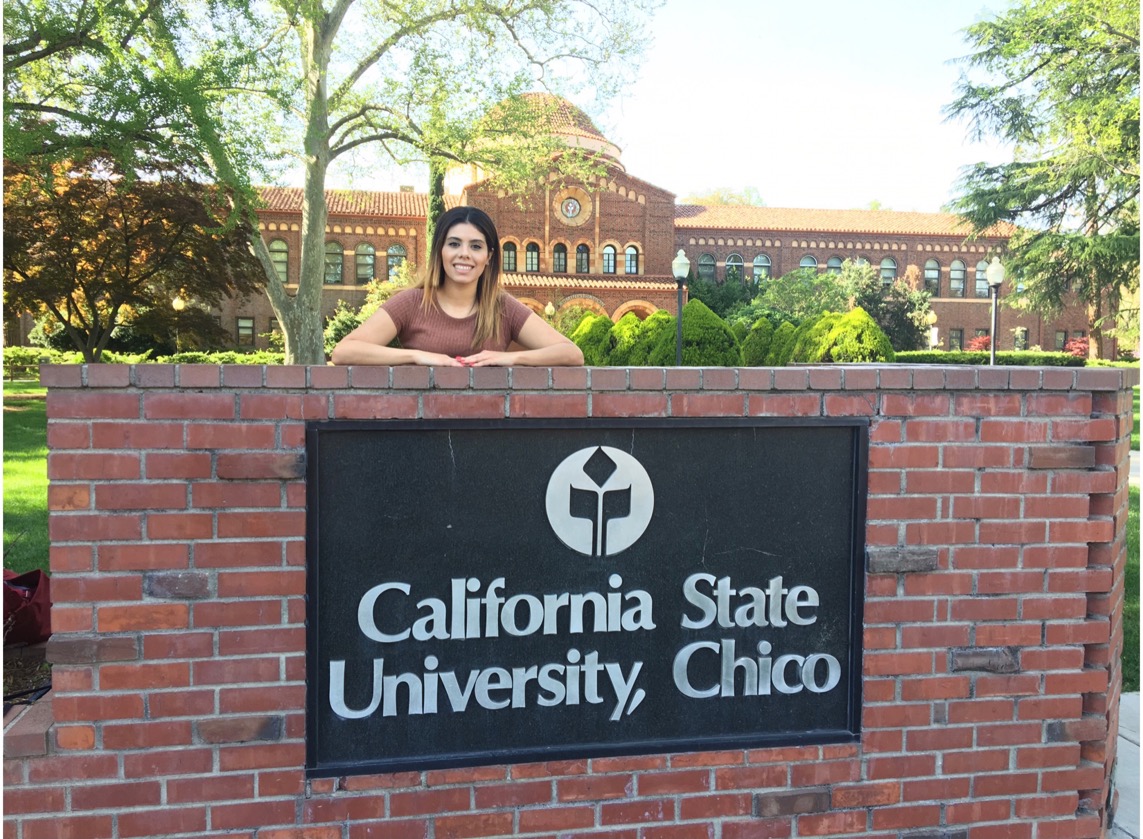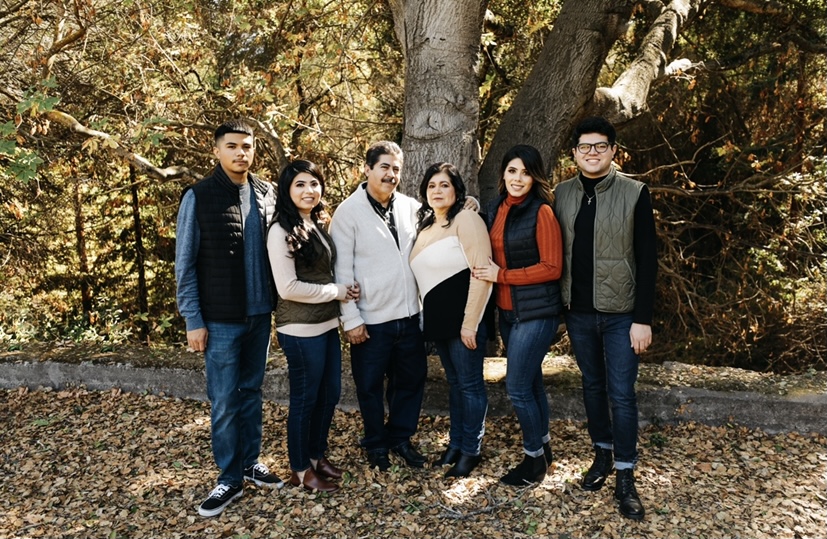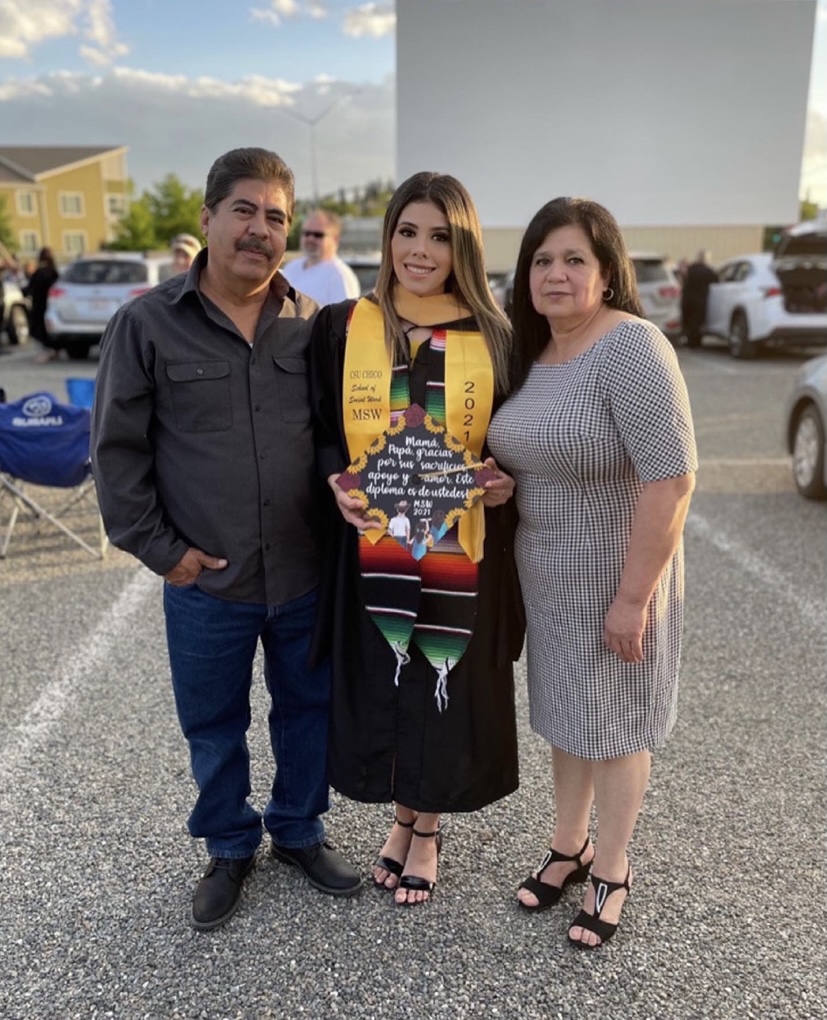Social Work Alumna Finds Hope Helping Families Across the Country

Part social worker, part detective, Veronica Ledesma attempts to locate and help reunified families scattered throughout the nation.
For the last three years, Ledesma (MA, Social Work, ’21) has worked as an outreach care coordinator for Seneca Family of Agencies and its program Todo Por Mi Familia. Formed in 2020, this program facilitates mental health services for reunified families across the country.
To connect with her clients, Ledesma draws on her own memories of traveling to the United States and navigating unfamiliar systems. Born in Mexico, she immigrated with her parents and two siblings when she was eight years old.
“Even just talking a little bit about my experience helps them build that trust with me,” she said. “I want to be that person to support them and guide them as much as I can.”
Ledesma is strategic in her efforts. Sometimes, she cold-calls an individual’s last known phone number—a relative’s residence, detention facility, or previous employer. Other times, she hits the pavement, walking door-to-door, talking to individuals in-person, and plastering posters in windows, on buildings, and along well-traveled routes.
When she finds individuals, the next step is to connect them with free mental health services—facilitated by Seneca—to begin coping with the severe trauma of separations. The entire process can be grueling, but the positive outcomes are why Ledesma does the work.
“One of the first reunified families I connected with, the mother called me her guardian angel,” she said. “She said, ‘you found me when I almost gave up. I regretted coming here, but you gave me a reason to live and gave me the opportunity to be able to stay here and fight for my daughter.’ I will never forget that.”

Often, though, leads do not pan out, which can be frustrating.
“I know these families are struggling, they don’t know they’re eligible for these services and have rights,” she said. “That empowers me and motivates me more to keep pushing and remain hopeful that I am going to find new families at some point.”
No matter the challenges, Ledesma remains undeterred because she knows her actions build hope for families that have experienced nothing but years of hopelessness.
“Sometimes when I meet with them, I cry with them—I’m human and I hurt for them, but I’m also here for them,” she said.
Ledesma knows firsthand how critical compassion and support networks can be. Eyeing her college options after graduating from high school, she faced a financial obstacle—as a DACA recipient, she was ineligible to receive any kind of financial aid for college. But, a fundraising effort from Leadership Public Schools-Richmond helped fund her first two undergraduate years at Sacramento State. And when DACA passed in 2012, she applied for and received financial aid to cover tuition so she could complete her degree in 2016.
After she was accepted into Chico State’s School of Social Work’s one-year master’s degree program in 2017, however, she faced a few additional setbacks. A pair of grandparents died in quick succession, so she returned to the Bay Area to help support her family. Around the same time, she required knee surgery and faced four to six months of recovery.
“I took that as a sign that I just needed to take care of myself, be with family, and then come back and be more present and ready to learn,” she said. “I knew that I would be back, though. I had a plan.”
In 2020, she enrolled in the School of Social Work’s Distributed Learning program, allowing her to work in the Bay Area for Seneca while completing her degree. Professor Emeritus Patty Hunter served as Ledesma’s faculty liaison for her field practicum course and witnessed her passion, compassion, and humility daily.

“She was willing to talk about her own immigration status and what that has been like for her to live with that uncertainty and not knowing, as a DACA student, what was going to happen,” said Hunter (Social Work, ’81). “That was really, really powerful for the students to hear her speak about it.”
Ledesma’s openness about her personal journey helped bring home the lesson that human beings’ lives, families, and futures are all at stake—because of federal policy, Hunter said.
“We can talk policy in the classroom, but I think Veronica really put a face to the implications of that policy,” she said. “The students walked away understanding more about what the impact was on a personal level, a familial level, and a cultural level.”
Ledesma thrived under the guidance and support from the School of Social Work faculty and staff.
“When I came back, I felt like I was a completely different person and was more focused and ready to learn,” she said. “My professors were extremely supportive and understanding and they really encouraged me. They helped me become a stronger person and a stronger social worker.”
In May, Ledesma was recognized with the Social Work Outstanding Student Award of 2021 from the College of Behavioral and Social Science for master’s-level students in the Distributed Learning program. Later that month, she received her degree—and her parents were in attendance to share in the celebration.
“That is why my parents immigrated to the US—for a better future, for our education,” she said. “This has always been a dream of mine, to be able to get this far in life and to show my parents that their sacrifices were worth it.”


